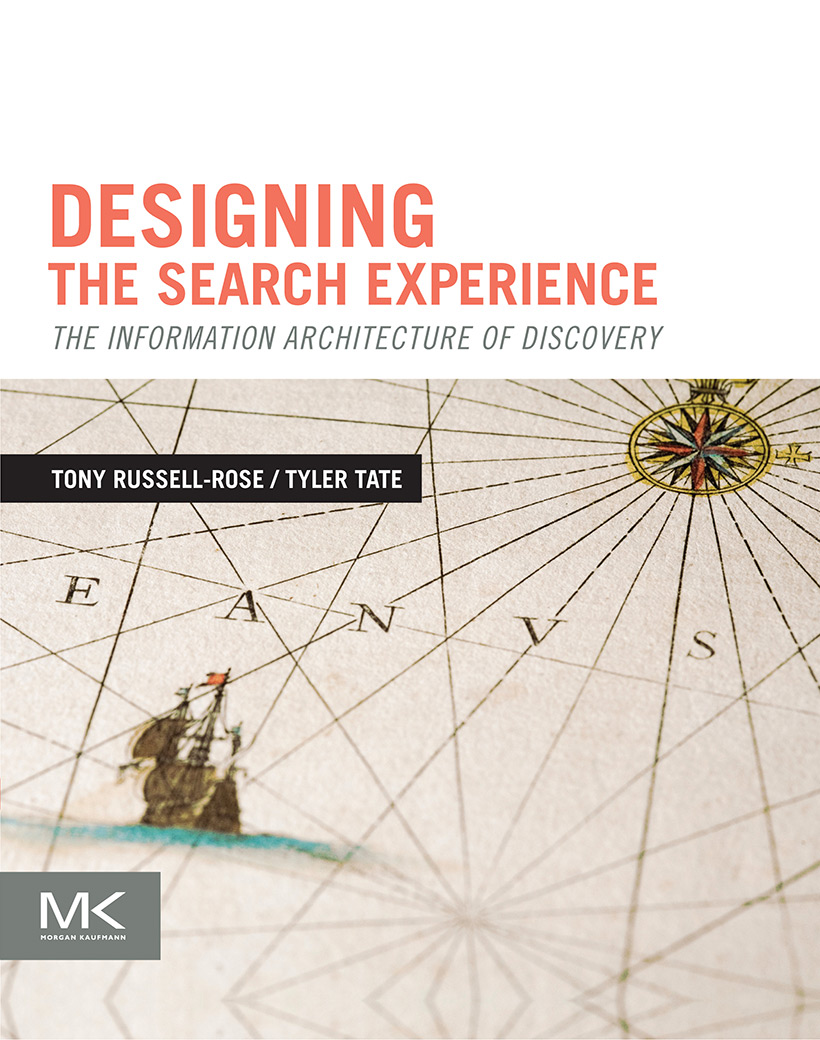
On Wednesday next week (14th July) I’ll be presenting a half day course called Search Usability, courtesy of CILIP and the UKeIG in particular. This course is new in two ways:
I did give some thought to the title. In particular, I’m aware that the term ‘usability’ has fallen out of favour in recent years, partly due to its connotations (in my view) as being a ‘nice to have’ feature or attribute. Instead, I prefer to frame UX in terms of ‘fitness for purpose’ or simply ‘good design’ – few would argue that those criteria are essential to any successful product or service. Moreover, they are central to the design of effective search experiences, and that’s what this course is all about.
I did also consider ‘Designing the Search Experience’, but I’ve rather beaten that title into submission in recent years, and besides, the course includes insights from UX research as well as UX design, so if you take it too literally you may incorrectly conclude that the course is aimed exclusively at designers (or individuals with such aspirations). Maybe I’m over-thinking this, but ‘Search Usability’, although it’s a bit 1990s, feels more inclusive.
Since this is only the second presentation of this particular course, its likely that we will need some flexibility in approach and content. For that reason I have included a few extra activities which I don’t expect to need on the day, but they are there just in case.
A final update: the previous presentation of this course sold out, so we said we’d do another one later in the year. As far as I’m aware, at the time of writing this there are still a few places available.
For further details and registration, see the UKeIG event page. In the meantime, I’ve appended further details below.
Hope to see you there!
(more…)
Read Full Post »








